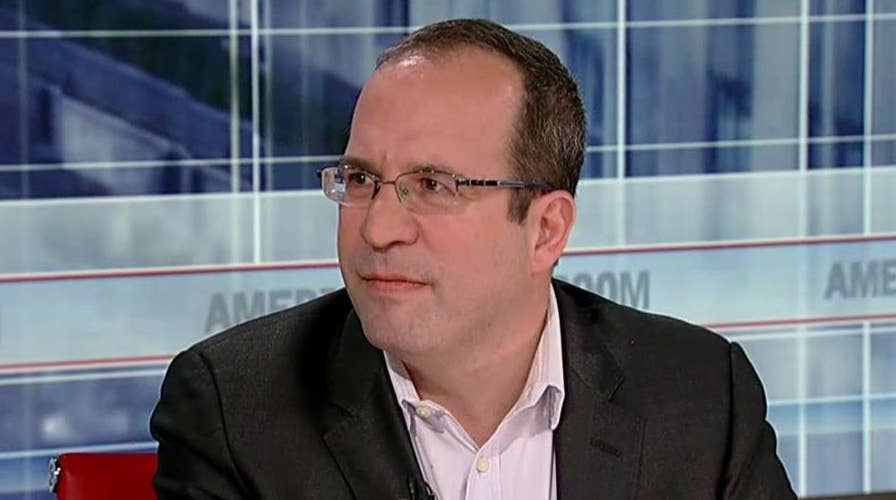College Board CEO says students' SAT scores won't be changed, new rating provides colleges with context
David Coleman defends the College Board's new 'environmental context dashboard.'
The College Board, which oversees the SAT exam that most colleges use to help evaluate students applying for college, has come under misinformed criticism recently. The target has been a new tool that gives admissions officers some context about where students grew up and what challenges they faced.
As the CEO of the College Board, I’d like to knock down some of those misconceptions.
America was built on grit and gumption. The belief that with hard work and courage you can achieve beyond your circumstances is a fundamental part of our national identity. It’s what makes this the land of opportunity. But to get that opportunity, you need a witness – someone who sees your abilities.
COLLEGE BOARD CEO DEFENDS SAT 'ADVERSITY SCORE,' TELLS UNDERPRIVILEGED STUDENTS, 'WE CAN SEE YOU'
Today far too many of America's most talented students go unseen. Across the country, from Buffalo to Boise and a thousand small towns in between, there are students who achieve a great deal with very little.
Yet because these students don't live in the right places or go to the right schools, they can be overlooked by college admissions officers. They become simply test scores. They become invisible.
This is not an "adversity score.” Nor is it a radical new approach. For decades, admissions officers have been searching for kids who overcome challenges, who have the drive to succeed that can’t be summed up in a test score.
But when we add context to SAT scores – such as data about a student’s neighborhood and high school – the student can be seen, and his or her achievements can be properly honored. Once this happens, students can go to college, put themselves on the path to the middle class, and achieve the American Dream.
A young white woman from rural Mississippi was recently accepted by a college we partner with, even though her SAT score alone didn’t set her apart. But when that college looked at her score in context, it found it was 400 points higher than the average at her school.
The student had attended a tiny school with few resources in a neighborhood rife with poverty, but she made the most of what she had. She showed ambition, resilience, and guts. She showed that she was likely to excel in college. All she needed was the opportunity.
She got that chance thanks to the College Board's Environmental Context Dashboard (ECD) – what has incorrectly been labeled the “adversity score.”
Since 2017, we have worked with 50 colleges and universities to pilot the ECD, which pulls together more than 20 data points that offer a fuller view of a student’s environment.
There’s so much more we can see than by looking at scores alone. Life in rural America, for instance, can be just as challenging as in urban areas, but college admissions officers can't visit the vast majority of these small communities.
The ECD allows us to tell those students who perform extraordinarily well in demanding circumstances: Colleges see you – and you won’t be counted out at the beginning.
This is not an "adversity score.” Nor is it a radical new approach. For decades, admissions officers have been searching for kids who overcome challenges, who have the drive to succeed that can’t be summed up in a test score.
What the ECD doesn’t do is alter a student’s SAT score. A student's score is his or her score. Period. The ECD simply provides vital context for that score. The SAT is a vital measure of achievement, but it doesn't measure what you've overcome.
The ECD doesn't rely on private personal information. Instead, it draws on a combination of College Board data and public sources, like the National Center for Education Statistics.
The ECD doesn't guarantee anyone’s automatic entry to any school. It merely ensures students who deserve a second look get it. It's up to the student to show he or she belongs at that school. This is a hand up, not a hand-out.
Adversity is common – resourcefulness is rare. With this new tool, we're telling students who are given a lot less that they too belong. That they too should continue to dream of bettering their lives.
CLICK HERE TO GET THE FOX NEWS APP
The beautiful promise of America is that everyone deserves a shot. All students willing to roll up their sleeves, work hard and distinguish themselves – regardless of where they live or their circumstances – deserves the opportunity to achieve, to aspire and to attain the American Dream.
They deserve to be seen.
